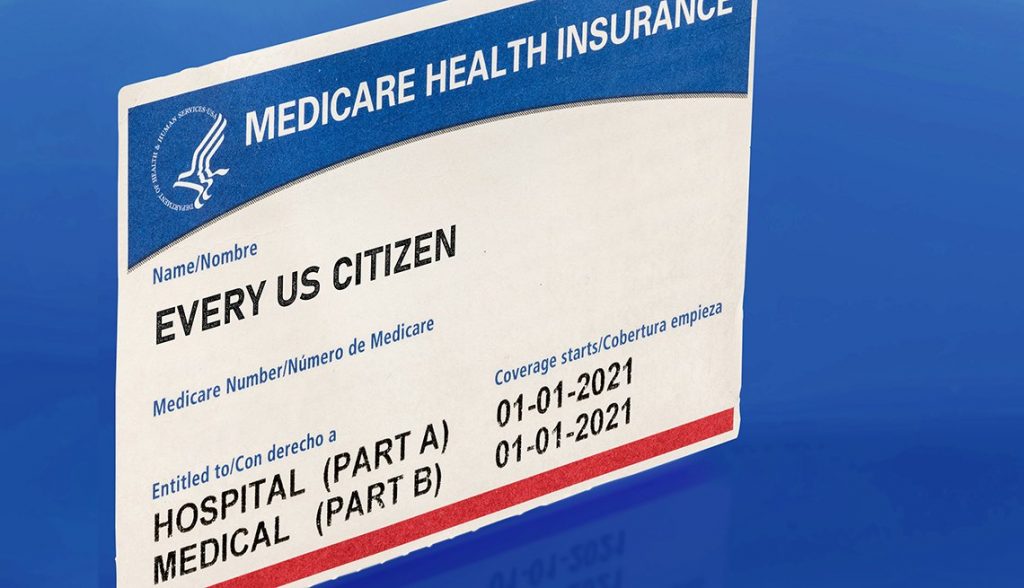
A group of 21 Democratic senators have reintroduced legislation in Congress to lower the qualifying age for Medicare from 65 to 50.
“When it comes to providing affordable health care for every American, there is more we must do right now to change the status quo, improve our health care system and lower costs,” said Sen. Tammy Baldwin, a Democrat from Wisconsin and one of the cosponsors of the bill.
Baldwin added that this legislation would give millions of Americans an option to “get the health care coverage they need at a price they can afford.”
Here’s what you need to know about the proposed reform and how to find affordable health coverage even if you’re nowhere close to age 50.
What’s behind this proposed bill?
Since the program was created in 1966, you’ve had to be 65 years old to qualify for Medicare coverage.
At the press conference announcing the bill, Sen. Sherrod Brown, a Democrat from Ohio, said lowering the age limit could be life-changing for millions of Americans.
“I remember a few years ago, I was at a town hall meeting in Youngstown, Ohio, and a woman stood up and said ‘I’m 63 years old. My goal in life is to live till I’m 65 so I can get on Medicare,’” he said.
“She was so focused on her health care. She had two jobs at the time, both low-wage jobs and neither provided insurance. She just knew how important it was to have insurance and get on something that is [as] popular and important and sufficient and effective as Medicare.”
Recent research shows that lowering the age limit of Medicare coverage could even be life-saving for some.
Diagnoses of certain cancers are disproportionately higher among people 65 and older, compared to those 64 and younger, according to a recent Stanford University study.
The study’s authors concluded that “many people are delaying their care for financial reasons until they get health insurance through Medicare.”
What would the changes mean?
More than a quarter of adults approaching retirement have little to no confidence they’ll be able to afford health insurance over the next year.
And 45% have little to no confidence they’ll be able to afford the cost of their health insurance once they retire, according to a 2019 survey from the University of Michigan.
Right now, a 60-year-old with an annual income of $51,000 — which is a little more than four times the poverty level — would have to pay a premium of $4,420 a year for a silver health plan on the Obamacare exchanges, according to the Kaiser Family Foundation.
If the Medicare age drops, that $4,420 annual expense would plummet — or even disappear — once the person enrolled in Medicare, depending on their care requirements.
“As people approach retirement, their health care needs tend to go up,” Brown said. “Letting people choose to buy into Medicare, starting at age 50, would fix that. It’s something achievable we can get done right away to make a difference in millions of Americans’ lives.”
But it doesn’t have universal support
Most Americans support expanding Medicare coverage — a 2019 Kaiser Family Foundation poll indicates that 77% of respondents (85% of Democrats and 69% of Republicans polled) support the idea of introducing a Medicare buy-in for people as young as 50.
But the idea faces detractors in Congress.
And not just from Republicans — more conservative members of the Democratic party are likely to push back on any changes to the state-sponsored health system.
In response to Biden’s comparatively modest proposed changes, hospital communities argued that expanded health care could encourage more people to retire younger, which would negatively impact the workforce. They’re also concerned it would reduce the amount health care providers receive in reimbursements.
What about everyone else?
For anyone who isn’t yet 50 (or 60) who wouldn’t be impacted by the proposed age drops, you can still expect to receive some health-care benefits.
The Biden administrations’ new Obamacare subsidies make it easier for you to get affordable health insurance.
With the subsidies, which apply to plans available on healthcare.gov and other ACA exchanges during the current special enrollment period, anyone making more than $51,000 a year could find a plan for about $1,000 less per month than before the bill was passed.
What to do if the bill doesn’t pass
To pass Congress, the bill would need full support from all of the Democratic members. Since that seems unlikely, it’s best to make some plans to find savings for yourself.
If you’ve got bills piling up these days, health care or otherwise, you may want to consider a lower-interest debt consolidation loan to help get you out of debt easier and sooner.
As for your health-care costs, it will take a little while for you to see the impact of the new subsidies. Make sure you’re not overpaying for this crucial coverage by shopping around for the best rate.
And while you’re shopping for insurance, why not keep the savings rolling? By looking around for a cheaper policy, you could potentially cut your homeowners insurance bill by $1,000 this year.
Even if the government doesn’t pass a change qualifying you for Medicare coverage, with the savings above, you can make your own changes to the status quo, improve your health care coverage and lower your monthly bills.























